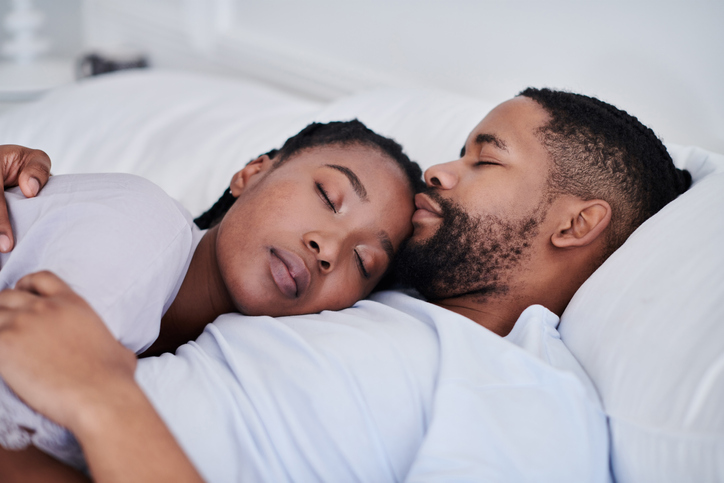REPORT: Black People Aren’t Getting Enough Sleep And It’s Killing Us
Source: jeffbergen / Getty
Getting a good night’s sleep nowadays, for many almost seems like an impossible task. If you spend hours laying in the bed tossing and turning, you are not alone. Black and brown people in America aren’t getting nearly enough sleep, and it’s leading to major health concerns within our communities.
According to a recent study by Science Magazine, black and brown folks on average take longer to fall asleep and wake up when compared to their white counterparts. These discrepancies lead to major health concerns like heart disease, cancer, and diabetes.
Sleep researcher Girardin Jean-Louis has been studying sleep deficiency in communities of color for years and his studies suggest about 45% of black and brown folks sleep less than six hours a night. For many of us, six hours feel like adequate sleep time, but researchers like Jean-Louis believe a healthy life requires somewhere between six to eight hours of sleep per night. Anything above or below that could lead to heart problems and early mortality.
But why do black people sleep less than whites?
Traditionally people of color work less desirable jobs, which sometimes come with non-traditional hours like night shifts. A 2010 sleep study found that people of color were twice as likely to work the night shift. Socioeconomic factors also play a huge role in the amount of sleep we get or don’t get. Stress-related to racism and discrimination also cause poor sleep habits. A study by ScienceDirect found that 60% of insomnia for black people was caused by racial discrimination.
“If you saw what was happening, for instance, about a year and a half ago and George Floyd happened, a lot of Black folks were just not sleeping enough,” said Jean-Louis. “So if you already sleeping six hours or less and you lose another 30 minutes, this could be the tipping point for what might become high blood pressure, diabetes, and difficulty with HIV and cancer management.”
But researchers are working on solutions. Jean-Louis believes meeting black and brown people where they are and speaking their language could help combat the sleep disparity numbers. Jean-Louis goes to churches, barbershops, and hair salons to talk to black and brown people about the dangers of not sleeping enough. He also enlists volunteers and trains them to become “certified sleep educators,” to help teach black and brown communities the importance of good sleep.
“When you speak that language, people tend to be a bit more receptive because that’s their lane,” said Jean-Louis.
SEE ALSO:
Multiple Myeloma, The Cancer Colin Powell Had, Is A ‘Silent Killer’ Of Black People
5 Ways Climate Change Directly Affects Black People
[ione_media_gallery id=”4222155″ overlay=”true”]

